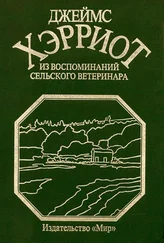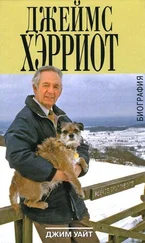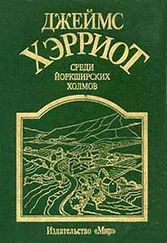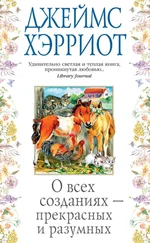Джеймс Хэрриот - All Creatures Great and Small
Здесь есть возможность читать онлайн «Джеймс Хэрриот - All Creatures Great and Small» весь текст электронной книги совершенно бесплатно (целиком полную версию без сокращений). В некоторых случаях можно слушать аудио, скачать через торрент в формате fb2 и присутствует краткое содержание. Год выпуска: 2011, ISBN: 2011, Издательство: Open Road Media, Жанр: Домашние животные, на английском языке. Описание произведения, (предисловие) а так же отзывы посетителей доступны на портале библиотеки ЛибКат.
- Название:All Creatures Great and Small
- Автор:
- Издательство:Open Road Media
- Жанр:
- Год:2011
- ISBN:9781453234488
- Рейтинг книги:4.33 / 5. Голосов: 3
-
Избранное:Добавить в избранное
- Отзывы:
-
Ваша оценка:
- 80
- 1
- 2
- 3
- 4
- 5
All Creatures Great and Small: краткое содержание, описание и аннотация
Предлагаем к чтению аннотацию, описание, краткое содержание или предисловие (зависит от того, что написал сам автор книги «All Creatures Great and Small»). Если вы не нашли необходимую информацию о книге — напишите в комментариях, мы постараемся отыскать её.
All Creatures Great and Small — читать онлайн бесплатно полную книгу (весь текст) целиком
Ниже представлен текст книги, разбитый по страницам. Система сохранения места последней прочитанной страницы, позволяет с удобством читать онлайн бесплатно книгу «All Creatures Great and Small», без необходимости каждый раз заново искать на чём Вы остановились. Поставьте закладку, и сможете в любой момент перейти на страницу, на которой закончили чтение.
Интервал:
Закладка:
When Mr. Gill’s wife ran away with a man who came round the farms selling brushes it caused a sensation. Nothing like that had ever happened in Hillom before and a wave of delighted horror swept through the village. This, I thought, would be the high point of Luke Benson’s life and when I had to visit a heifer of his I expected to find him jubilant. But Luke was gloomy.
As I examined and treated his animal he remained silent and it wasn’t until I went into the kitchen to wash my hands that he spoke. He glanced round warily at his wife, a gaunt, grim-faced woman who was applying blacklead to the grate.
“You’ll have heard about yon ’oppin youth’s missus runnin’ off?” he said.
“Yes,” I replied. “I did hear about it.” I waited for Luke to gloat but he seemed strangely ill at ease. He fidgeted until I had finished drying my hands then he glared at me and bared his strong teeth.
“Ah’ll tell you something, Jems,” he ground out. “Ah wish somebody would tek MA bugger!”
And there was that letter from the Bramleys—that really made me feel good. You don’t find people like the Bramleys now; radio, television and the motorcar have carried the outside world into the most isolated places so that the simple people you used to meet on the lonely farms are rapidly becoming like people anywhere else. There are still a few left, of course—old folk who cling to the ways of their fathers and when I come across any of them I like to make some excuse to sit down and talk with them and listen to the old Yorkshire words and expressions which have almost disappeared.
But even in the thirties when there were many places still untouched by the flood of progress the Bramleys were in some ways unique. There were four of them; three brothers, all middle-aged bachelors, and an older sister, also unmarried, and their farm lay in a wide, shallow depression in the hills. You could just see the ancient tiles of Scar House through the top branches of the sheltering trees if you stood outside the pub in Drewburn village and in the summer it was possible to drive down over the fields to the farm. I had done it a few times, the bottles in the boot jingling and crashing as the car bounced over the rig and furrow. The other approach to the place was right on the other side through Mr. Broom’s stackyard and then along a track with ruts so deep that only a tractor could negotiate it
There was, in fact, no road to the farm, but that didn’t bother the Bramleys because the outside world held no great attraction for them. Miss Bramley made occasional trips to Darrowby on market days for provisions and Herbert, the middle brother, had come into town in the spring of 1929 to have a tooth out, but apart from that they stayed contentedly at home.
A call to Scar House always came as rather a jolt because it meant that at least two hours had been removed from the working day. In all but the driest weather it was safer to leave the car at Mr. Broom’s and make the journey on foot. One February night at about eight o’clock I was splashing my way along the track, feeling the mud sucking at my Wellingtons; it was to see a horse with colic and my pockets were stuffed with the things I might need—arecoline, phials of morphia, a bottle of Paraphyroxia. My eyes were half closed against the steady drizzle but about half a mile ahead I could see the lights of the house winking among the trees.
After twenty minutes of slithering in and out of the unseen puddles and opening a series of broken, string-tied gates, I reached the farm yard and crossed over to the back door. I was about to knock when I stopped with my hand poised. I found I was looking through the kitchen window and in the interior, dimly lit by an oil lamp, the Bramleys were sitting in a row.
They weren’t grouped round the fire but were jammed tightly on a long, high-backed wooden settle which stood against the far wall. The strange thing was the almost exact similarity of their attitudes; all four had their arms folded, chins resting on their chests, feet stretched out in front of them. The men had removed their heavy boots and were stocking-footed, but Miss Bramley wore an old pair of carpet slippers.
I stared, fascinated by the curious immobility of the group. They were not asleep, not talking or reading or listening to the radio—in fact they didn’t have one—they were just sitting.
I had never seen people just sitting before and I stood there for some minutes to see if they would make a move or do anything at all, but nothing happened. It occurred to me that this was probably a typical evening; they worked hard all day, had their meal, then they just sat till bedtime.
A month or two later I discovered another unsuspected side of the Bramleys when they started having trouble with their cats. I knew they were fond of cats by the number and variety which swarmed over the place and perched confidently on my car bonnet on cold days with their unerring instinct for a warm place. But I was unprepared for the family’s utter desolation when the cats started to die. Miss Bramley was on the doorstep at Skeldale House nearly every day carrying an egg basket with another pitiful patient—a cat or sometimes a few tiny kittens—huddling miserably inside.
Even today with the full range of modern antibiotics, the treatment of feline enteritis is unrewarding and I had little success with my salicylates and non-specific injections. I did my best. I even took some of the cats in and kept them at the surgery so that I could attend them several times a day, but the mortality rate was high.
The Bramleys were stricken as they saw their cats diminishing. I was surprised at their grief because most farmers look on cats as pest killers and nothing more. But when Miss Bramley came in one morning with a fresh consignment of invalids she was in a sorry state. She stared at me across the surgery table and her rough fingers clasped and unclasped on the handle of the egg basket.
“Is it going to go through ’em all?” she quavered.
“Well, it’s very infectious and it looks as though most of your young cats will get it anyway.”
For a moment Miss Bramley seemed to be struggling with herself, then her chin began to jerk and her whole face twitched uncontrollably. She didn’t actually break down but her eyes brimmed and a couple of tears wandered among the network of wrinkles on her cheeks. I looked at her helplessly as she stood there, wisps of grey hair straggling untidily from under the incongruous black beret which she wore pulled tightly over her ears.
“It’s Topsy’s kittens I’m worried about,” she gasped out at length. “There’s five of ’em and they’re the best we’ve got.”
I rubbed my chin. I had heard a lot about Topsy, one of a strain of incomparable ratters and mousers. Her last family were only about ten weeks old and it would be a crushing blow to the Bramleys if anything happened to them. But what the devil could I do? There was, as yet, no protective vaccine against the disease—or wait a minute, was there? I remembered that I’d heard a rumour that Burroughs Wellcome were working on one.
I pulled out a chair. “Just sit down a few minutes, Miss Bramley. I’m going to make a phone call.” I was soon through to the Wellcome Laboratory and half expected a sarcastic reply. But they were kind and co-operative. They had had encouraging results with the new vaccine and would be glad to let me have five doses if I would inform them of the result.
I hurried back to Miss Bramley. “I’ve ordered something for your kittens. I can’t guarantee anything but there’s nothing else to do. Have them down here on Tuesday morning.”
The vaccine arrived promptly and as I injected the tiny creatures Miss Bramley extolled the virtues of the Topsy line. “Look at the size of them ears! Did you ever see bigger ’uns on kittens?”
Читать дальшеИнтервал:
Закладка:
Похожие книги на «All Creatures Great and Small»
Представляем Вашему вниманию похожие книги на «All Creatures Great and Small» списком для выбора. Мы отобрали схожую по названию и смыслу литературу в надежде предоставить читателям больше вариантов отыскать новые, интересные, ещё непрочитанные произведения.
Обсуждение, отзывы о книге «All Creatures Great and Small» и просто собственные мнения читателей. Оставьте ваши комментарии, напишите, что Вы думаете о произведении, его смысле или главных героях. Укажите что конкретно понравилось, а что нет, и почему Вы так считаете.




![Джеймс Хэрриот - О всех созданиях – больших и малых [litres]](/books/391169/dzhejms-herriot-o-vseh-sozdaniyah-bolshih-i-malyh-thumb.webp)







